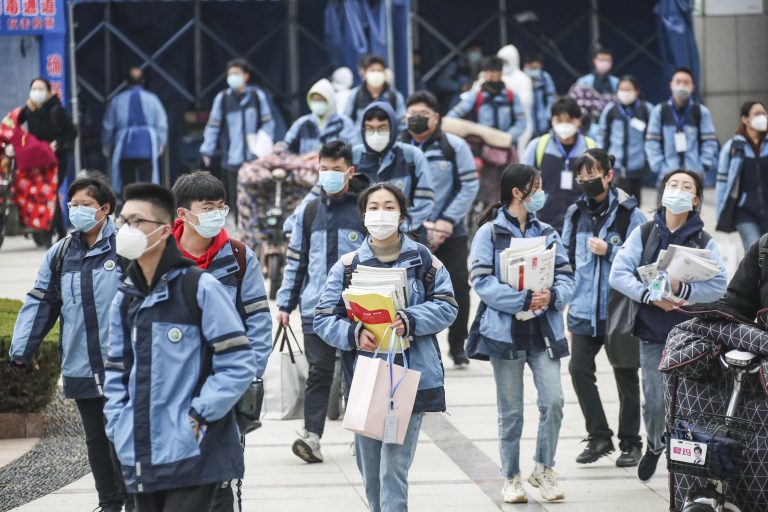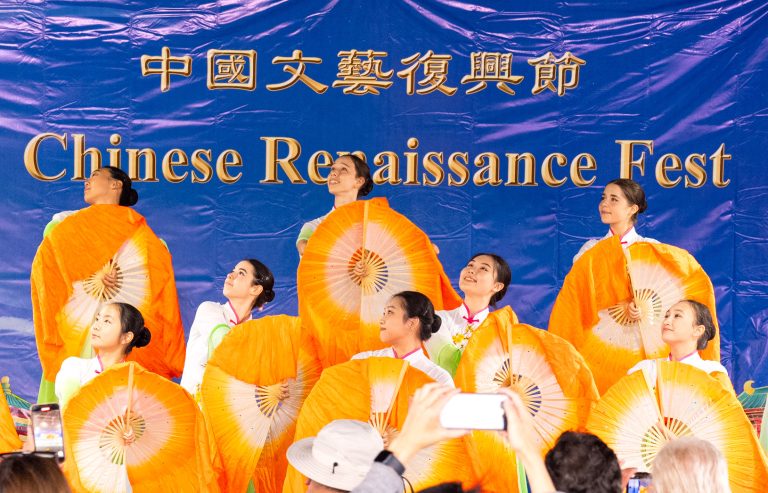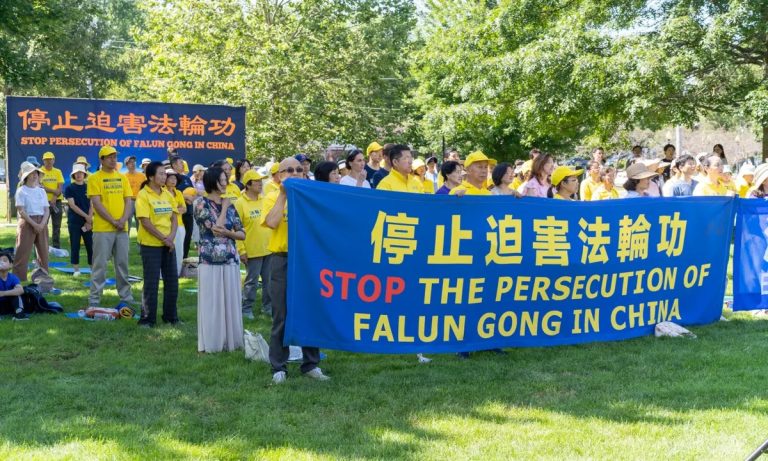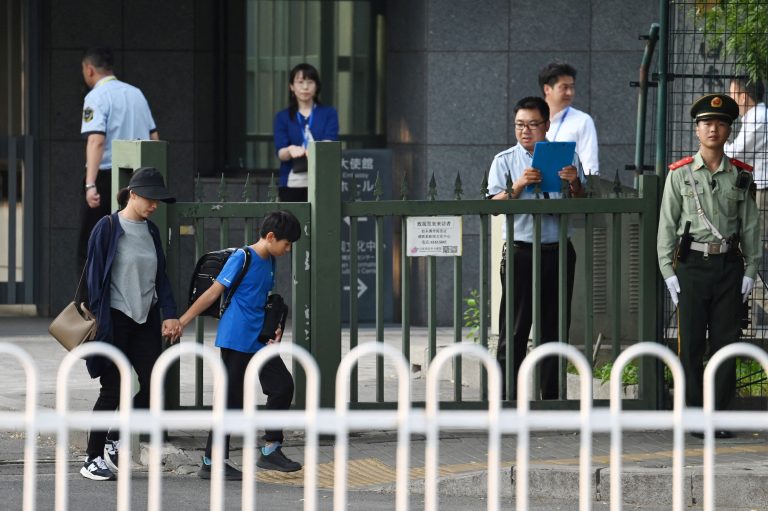A Chinese official in charge of a demographic policy research institute has sparked controversy with her recent statements — which many internet users have interpreted as a suggestion that the ruling Communist regime could try to reverse China’s population decline by tolerating, or even encouraging, teen pregnancy.
On March 4, an article by the state-run China News Weekly published on social media site Weibo quoted He Dan — who heads the China Population and Development Research Center — on her ideas about expanding pro-natalist education among elementary and middle school students.
Following the news about He’s comments, many netizens expressed skepticism over the proposed educational directive. Some feared that the demography policy researcher was hinting that the Chinese Communist Party (CCP) could tolerate underage pregnancy.
“If you don’t know how to properly make a suggestion, then don’t,” said one netizen, adding that the idea of encouraging teenagers to “have a baby at the age of 14” is insane.
“Shouldn’t the directors and experts of these research centers have to be responsible [?” another user added. “Shouldn’t our children’s focus be on finding a job before they [think about having kids]?”
MORE ON CHINA’S POPULATION CRISIS:
- Impact of China’s Demographic Collapse Revealed in Official Numbers
- COVID-19 Worsened China’s Declining Birth Rate, Health Commission Says
- Men Seeking Vasectomies in China Denied by Government as Birth Rate Continues to Decline
- China Is Ending Its Population Controls, But Many No Longer Want to Have Children
- The Brunt of a Nation: How China’s One-Child Policy Affected Thousands of Families
Success
You are now signed up for our newsletter
Success
Check your email to complete sign up
The term “pro-natalist” refers to the view that having more children is desirable and beneficial for society; many developed governments facing lowing birthrates have introduced programs or policies that aim to promote and encourage more children to support aging societies.
The authorities, He said, should “have primary and middle school students understand our country’s current demographic situation from the perspective of national conditions,” and added that she believes schools should emphasize the importance of population size and the structure of demographic trends for the well-being and future of the country.
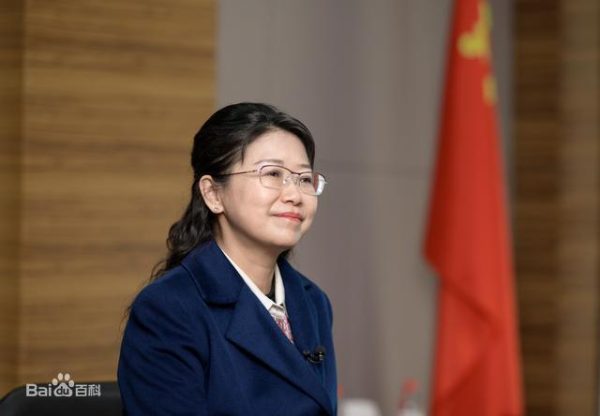
He Dan also serves as a delegate of the Chinese People’s Political Consultative Conference (CPPCC) — a political advisory body of the Chinese Communist Party (CCP) — used to help manage its control over society.
Established in 1949, and composed of representatives from various political parties, social groups, and organizations, the CPPCC is primarily tasked with providing advice and suggestions to the Chinese regime on matters related to economic, social, and political issues.
While the organization primarily serves under a consultative and advisory scope, and does not have direct decision-making power, the CPPCC meets annually during the “Two Sessions” of the National People’s Congress (NPC) to discuss and propose recommendations on crucial issues facing the country.
Popular concern
In response to He Dan’s remarks, a post titled “Birth[rate]-raising schemes have made their way into primary and middle schools” by a user named “Wei Chuliang” attracted widespread attention before it was taken down.
The post, which was first posted on Zhihu (a Quora-like question and answer platform), and archived on oversight site China Digital Times, highlighted the concept of “encouraging pro-natalist thinking among primary and middle school students,” while implying that the CCP is trying to shift blame and attention away from itself by placing blame on millennials and younger couples who choose to only have one child or remain childless altogether.
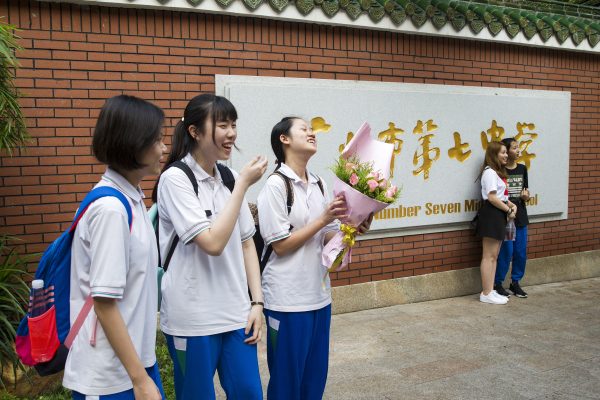
Issues stemming from the rising cost of living, career ambitions, demographic shifts, and the lasting legacy of the CCP’s infamous one-child policy have contributed to a growing number of couples opting not to have children.
These factors have made it increasingly more difficult for young couples to afford the expenses associated with raising children — and many have prioritized making a living over starting a family; others have said they lack the experience and skills necessary to raise a child, or are under too much pressure already to support aging family members.
“They are trying to tell our kids that the reason for the population decline and demographic imbalance is all due to the fact that we don’t want to have children?” one user commented.
Another said, “It used to be ‘study and work hard for the rise of China’, but now it’s turning into ‘reproduce for the rise of China’?” said one user, seemingly poking fun at the contradictory policies of the CCP; adding, “how are we expected to view fertility? Is it correct to have multiple children, and wrong to have just one or none at all? Please just come out and say it!”
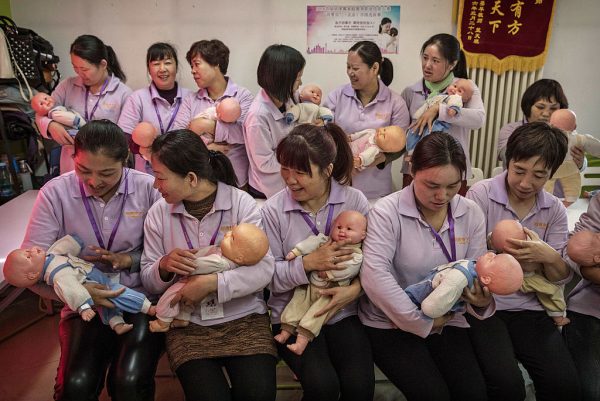
Comments censored
The article also criticized the CCP for its hypocrisy in enforcing a one-child policy for decades, but now scrambling to increase births. Before the post was taken down, many comments were either deleted or censored.
“Slogans used to be: ‘only one child is good’, ‘few births are good for a happy life’, and ‘advocate a couple to have one child.’ But now it’s changed to ‘multiple births are correct?’ So whether a birth is ‘correct’ or not, depends on what you [the regime] says at any given moment,” one user wrote.
Some netizens took to ridiculing the ever-shifting stances of the CCP: “On the one hand, anything that is deemed even a little bit racy is regarded as unacceptable,” one user said, adding, “But on the other hand, they also want to educate elementary and middle school students to have children [for the sake] of their country, all the while prohibiting teen relationships, yet urging them to get married.”
“Isn’t this behavior schizophrenic-like?” another said.
Others expressed frustration over the authorities’ lack of finesse in handling population issues. “So [He Dan] doesn’t mention anything about ‘sex education,’ yet she wants primary and middle school students to learn all about child-bearing; but how are they supposed to do that when they aren’t taught about how to have safe sex to begin with?”
According to data released by the National Bureau of Statistics of China, the world’s most populous nation clocked in at 1.41175 billion at the end of 2022 — a decrease of 850,000 from 2021. The number of new births was listed as 9.56 million, with a birth rate of 6.77 percent; while the number of deaths came in at 10.41 million, with a death rate of 7.37 percent — the highest since 1975.
Li Muzi and Leo Timm contributed to this report.



